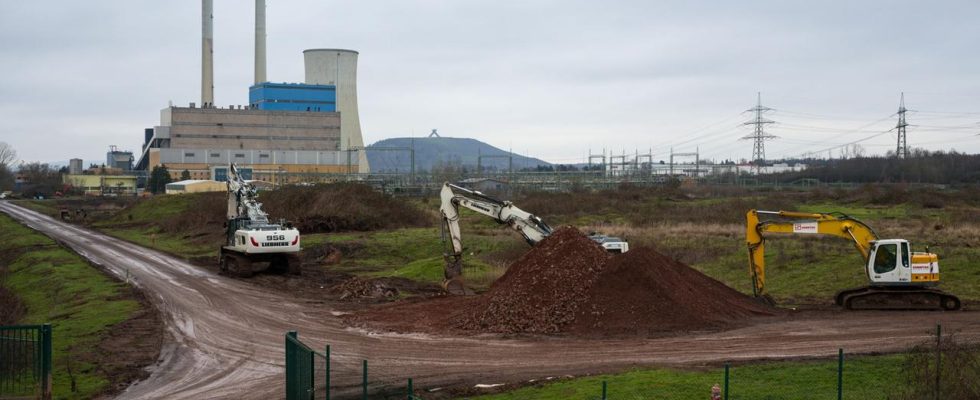The budget crisis is having a massive impact on the restructuring of the economy. Billions are to flow into climate investments in the steel industry and new chip factories. Now things could get difficult, as the example of Saarland shows.
It’s like a textbook for successful structural change: a chip factory is to be built on the site of a former hard coal power plant in Ensdorf, Saarland. The German automotive supplier ZF and the US chip company Wolfspeed want to produce silicon carbide semiconductors here from 2027.
Olaf Scholz came especially to present the plans at the beginning of the year. “There is much to suggest that semiconductors made of silicon carbide are the future, in the field of renewable energies, in telecommunications and especially in electromobility,” said the Chancellor at the time.
“It’s about trust and Credibility”
It had been a long wait in Saarland: First, the EU Commission had to give the green light under state aid law in the summer so that state funding could flow into the construction of the chip factory. Wolfspeed wants to invest a total of 2.5 billion euros in Saarland, and the federal and state governments should cover up to 25 percent of the costs.
Even without a final funding decision, construction began in consultation with the federal government. Since the Federal Constitutional Court ruling and the unclear funding situation since then, time has become even more pressing, says Saarland Economics Minister Jürgen Barke. “We are in intensive negotiations with the company,” said the SPD politician. “The first investments have already been made in the location.” This is important because this is “about trust and credibility in politics.”
Constitutional law There are also concerns in the country
In the USA, the government is pumping billions into promoting computer chips, e-mobility and hydrogen expansion with the “Inflation Reduction Act” and the “Chips Act”. And since the weekend it has been clear that Great Britain, for example, is also investing billions in strategically important industries. And in Germany, Economics Minister Robert Habeck has so far only been able to keep companies in line with words. “The crucial sentence is that all the projects we have designed must be made possible,” said the minister.
The federal government must quickly find a new financing solution. And Saarland, which itself has set up a loan-financed special fund to transform the economy, also has to do some work. There are constitutional concerns here too. “We have created the transformation fund and will continue to work on it structurally,” says Economics Minister Barke. “We are able to contribute our share of financing, and by the way: We have been asked several times to guarantee to the federal government that we can do this, and we have already done so several times.”
Funding commitments only for some companies
The next problem is possible distortions of competition, for example in the steel industry. And here too, Saarland is affected. The Saarstahl Group with its 13,200 employees has made an advance payment of three-digit millions for the climate-friendly conversion of production – and is now waiting for funding commitments.
The federal government has so far only approved funding for the CO2-neutral conversion to individual steel companies such as Thyssenkrupp or Salzgitter. However, the managing director of Saarstahl, Stefan Rauber, calls for quick solutions: “We need pragmatism and not regulatory hardliners and no scientific-theoretical debates, but we need quick solutions, better tomorrow than the day after.”
Steel and semiconductor industry – Saarland is an example of how urgently a financing solution is needed for the billion-dollar restructuring of the industry. Otherwise, old industries could disappear and new industries could be established elsewhere in the world.
Uli Hauck, ARD Berlin, tagesschau, November 27th, 2023 5:03 p.m

